Bill Glude is an avalanche specialist and environmental activist who founded Alaska Avalanche Specialists in 1976. This is an interview from 2019 about Hakuba, Nagano, Japan.
December 29th, 2020 | by Jared Kubokawa
Bill, can you tell us a little bit about yourself and what you do (in Hakuba).
I’m an avalanche specialist from Juneau, Alaska. I have been doing consulting work, guiding and teaching avalanche courses since the 1970s, mostly in Alaska, and added Japan to the mix fourteen years ago. I just dropped the backcountry guiding here this year; and am only teaching the avalanche courses now, and assisting with guide training and forecasting.
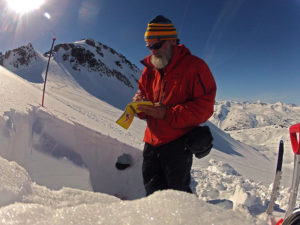

So how did you initially become interested in Japan?
My father came to Japan often as a marine biologist in the mid-1940s, before I was born. He loved Japan, so we grew up in Maine with Japanese art on the walls, learning Japanese manners, listening to his stories, nibbling on senbei, eating with hashi, and lurching around the house in geta and yukata.
Years later, my avalanche sensei professor at the University of Washington, who had just returned from a winter in Sapporo, gave me a bum steer about the skiing; noting that the snowfall was massive, but claiming that it was wet. It turned out that his years of snow research in the exceptionally light, dry inland powder snow of Alta, Utah had skewed his evaluation of the deeper, more variable Hokkaido snow that he had struggled to ride on the narrow skis of the time.
I got a second bum steer from the Japanese customers who were numerous at Alyeska Resort, where I worked in the ‘70s and ‘80s. They kept telling me the skiing at home was terrible. It turned out they were referring to the crazy traffic on the ski runs during the height of Japan’s ski boom and Bubble Era, when the crowds on the runs resembled the Shibuya Scramble crossing, not to the snow quality or backcountry skiing.
I heard a few tantalizing rumors, but finally got the straight story one spring when I ran into my fellow heliguide Jim Zellers chatting with our friend, pro-snowboarder and sometimes client Craig Kelly at Juneau’s springtime music festival. As we caught up on what everyone had been up to, Craig said he’d just come from Japan. I asked the usual, “Cool, how was it?” question. He attempted to hide his enthusiasm, but it was way too obvious how stoked he was, and he had to admit that it was indeed epic. The conversation moved on, but Craig’s endorsement had earned Japan a place on my list.
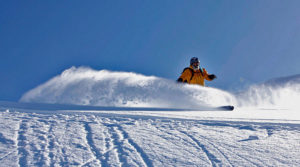
What finally brought you to Japan? And eventually Hakuba?
Fifteen years ago, I met this guy Charles Rials, who was teaching school in a small town near my home in Juneau, taking a year off from living in Matsumoto to ride our Alaskan big mountains. We did some backcountry, some heliboarding, and some mountain biking. We had a great time together, and he returned to Japan at the end of the summer.
The next year, we had a no-snow winter in Alaska, which is common now, but was still a rare thing back then. It was January and our little Eaglecrest ski area was closed. I was hiking up the muddy trail to the two forlorn stripes of snow that remained from early snowfall, skiing them so much that I was single handedly moguling them out!
Right then, Charles sent me a message from the chairlift at Iwatake with photos of him, grinning like a madman, powder caking his beard and clogging every helmet vent and goggle gap. The next shot showed buna (beech) forest choked with snow, perfectly spaced trees lushly cushioned.
I told him conditions were terrible in Alaska, and he responded, “Come on over!” I wrote back, “Are you serious?” He replied, “Yes!”
We had just canceled my upcoming avalanche courses due to lack of snow. I had free time and a little money saved up. My next note to him said, “Here’s my reservation; I’ll be there in ten days!”
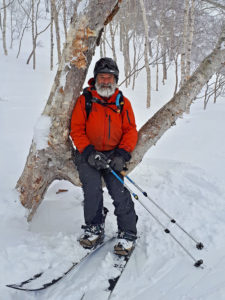
Once you finally got to Hakuba, what were your initial thoughts?
I fell in love with the place! Hakuba in those years was a paradise, uncrowded and very Japanese, but with just enough international flavor to make it interesting. Everyone collaborated, locals leading and foreigners helping. The Alaska-style mountains, Japan-style snow, and the courtesy, teamwork ethic, and depth of Japanese culture were irresistible to me.
Have those thoughts changed over time? How so?
I still love the place and the people, but climate collapse and unregulated growth here have me looking for new habitat, at least for early and mid-season. The mountains remain incomparable here, and I love the springtime, once there is a good base and the crowds thin.
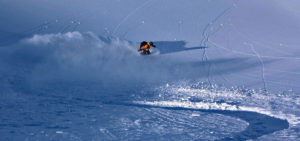
What do you think of the winter sports industry in Japan and specifically Hakuba?
I think it has great potential, if we can successfully prevent climate from totally breaking down. Japan’s snow communities need to aggressively lead and lobby for the strongest possible climate action, plan carefully, maintain local ownership, decolonize the foreign investment model, and strictly regulate and manage growth.
It is key to not lose community control, and to ensure that local young people have the training and opportunity to move into jobs and ownership first, to create their own future. Jobs and economic benefits need to come to the local people, with foreigners allowed to help the community, but not allowed to dominate it. Small numbers of high-quality visitors to locally-owned businesses maximize the economic benefit. It is essential to work proactively to minimize leakage of money from the local economy to cities and overseas.
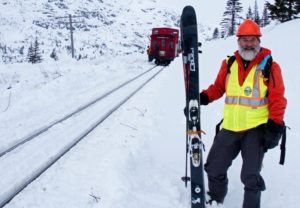
What do you see in the future for Hakuba?
Hakuba is at a fork in the road. There are threats on two levels: climate collapse on the global level, and unregulated growth of low-end industrial tourism on the local level. Hakuba can either choose to become a leader in the field of sustainability, regulating and planning to become both a great place to live and a great place to do business, along the model of Hood River, Oregon; or it can sacrifice quality of life, following the models of Bali and the early Niseko.
The global climate threat is especially severe, as we are seeing with our increasingly brown winter holiday seasons. Climate collapse will likely shut winter tourism worldwide down within ten years, and certainly within twenty years, if we do not act swiftly to reach zero carbon. Those of us in winter industries need to be out front, leading the battle; both in our own operations, and with our voting, organizing, lobbying, and political action.
The tourism industry needs to be pushing especially hard to make zero-carbon travel options available to our customers. That means carbon-neutral aircraft or other carbon-free options for international travel, and powering our already-efficient train and bus systems within Japan by renewable energy. It would be sadly ironic if our winter-dependent businesses came to an end because the emissions of skiers and boarders flying here from all over the world destroyed the very winter they sought!
Hakuba has tremendous potential, but it will not get there unless there is strong international action on climate, and unless the local community takes a lead in planning for and achieving sustainability, and tightly regulating growth. Hakuba and Nagano’s recent declaration of a climate emergency is a good start, but we need to act now to eliminate fossil fuel use and reach zero carbon. The snow industry needs to be so loud and a constant voice in the ear of government, both in Japan and in our business owners’ and visitors’ home countries, that it cannot be ignored.
I don’t think most business owners have really thought this through yet; understanding is just now dawning on most of us, because media coverage lent undeserved credibility to the fossil fuel industry’s propaganda campaign to cast doubt on good science, making climate issues seem remote and theoretical. If we had acted back in the 1980s when scientists first sounded the alarm, rather than being tricked into inaction by an industry PR campaign for all these years, we would have saved winter already. But we are on the exponential part of the curve now, and we will see more and more wild weather swings as the breakdown progresses. Disrupted climate will not be kind to us. It will be a real challenge worldwide to reinvent ethical and sustainable tourism, and a challenge for Hakuba to find its way to sustainability.
I hope we can pull it off. Business as usual will not be enough. Unlike politicians, physics does not compromise. Incremental change and politically attractive half-measures are useless when dealing with climate in crisis. Snow will be one of the first things to go, but major social and environmental destruction will soon make that look like the least of our problems, unless we do everything we possibly can to save the world’s climate.
On the positive side, we do know how to solve the problem. Most of the necessary technology exists to make the transition, and there are some good estimates out there that it would only take half the amount of the current fossil fuel subsidies to fund the transition to renewables. We are too late to save winter, but with strong action, it should return in our children’s lifetimes.
Eliminating all fossil fuel subsidies would allow redirection of those resources to development of the technologies not yet ready, like zero-carbon aircraft and shipping. There is no economic downside to moving rapidly forward, The countries and businesses that are in the lead will prosper, while those that lag will lose out.
I take great inspiration and hope from leaders like Sweden’s Greta Thunberg, the US’s Bernie Sanders and Alexandria Ocasio Cortez, and a large contingent of indigenous youth like Autumn Peltier of my Ojibwe tribe, and the youth coalition who pushed a climate emergency resolution through our Alaska Federation of Natives convention recently. Young leaders are out there pushing change, making a difference. They have helped generate a groundswell of public support for action, and they are not about to take no for an answer. They understand that we need to replace all world leaders who stand in the way with ones committed to real climate action, now.
Many people have lost hope in recent years as they have watched the spread of authoritarian oligarchy through the formerly free world, but the fact is that we the people outnumber them the plutocrats, and history has shown us that we have to push the bullies back every so often, to make room for the rest of us to live decent lives. The people have always won over time, too; the old rally chant is true: “The people, united, can never be defeated!”
We must again fill the streets and the halls of power with the voice of the 99%! The alternative is to just let the planet die, and really, there is no case to be made for that option; so why not take strong positive action?
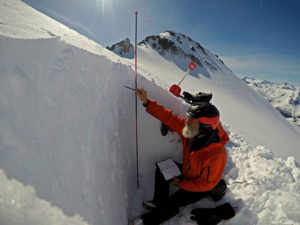
You do a lot of avalanche forecasting for backcountry travelers, how do the Japanese systems compare to systems in N. America?
The Japanese avalanche forecasting system is patterned after those in North America and Europe, and is a good effort, but does not really have enough field presence at present to do accurate forecasting. You really need people observing conditions in the field daily, and that can’t be done reliably on a volunteer basis. The program needs funding for paid field staff.
Can you talk a bit about responsible backcountry etiquette and what people do to help each other and make things safer?
Number one here in Hakuba, where a lot of very high-risk terrain is easily accessible from the lifts or by a short hike, is to not venture out there into avalanche terrain without avalanche training and the necessary gear. Get into a course, get your companions trained, make careful decisions, and carry the gear in case you blow the decision-making!
If you can’t do that right away, go with a guide who will set you up with the gear and knowledge to venture out.
Don’t follow tracks! Do not drop into places you don’t know! I run into people all the time, way out in the backcountry, far from the lifts, who have ridden down following tracks, with no skins, splitboard, or even snowshoes to get back to the ski area, and no emergency or avalanche gear.
Stay out of the closed areas; don’t duck ropes! You may not understand why, but they are closed on purpose. If you want to be able to ride freely, get trained and geared up to ride the backcountry. If you ride the lifts, you follow the ski area rules; that’s the bargain.
First among the standard backcountry precautions is to only have one person at a time exposed. Don’t cut above other groups, or ride through them when they are working a slope one by one. Clear out when you get to the bottom, so the next group can go.
Put in a thoughtful, safe, not-too-steep skin track that can be used by everyone, and take good care of it. NO boot packing on skin tracks; it ruins the trail for everyone else! Snowshoes are okay here so long as you take care to leave a smooth ramp for those on skins, rather than a staircase of steps they can’t climb.
Put the skin track on a low-risk or no-risk route; don’t skin up the middle of the run everyone will ski down, or up an avalanche path; go around to the side and up the ridges. Keep a gentle but steady grade, and put the turns where it is easy to step around.
Don’t be competitive; share the backcountry! Let those who came first enjoy their lunch without jumping into their run ahead of them. Talk with them, avoid the area they will ride, if they will be a while. Thank those who broke trail; don’t snake theirs or anyone else’s line!
Do a maximum of two runs in an area before you move on. Always leave snow for the next party; don’t track everything out!
Don’t give away special spots online; turn off locations for photos and posts; use only vague locations. Follow photographer Reuben Krabbe’s wise slogan – “Leave no trace, tag no place!” Let people have the joy of discovery; and help preserve the magic. Any place that is given away on social media nowadays gets quickly trashed; don’t let that happen to the special places you find.
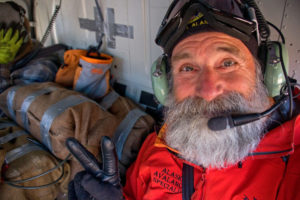
What exactly do you do for the Japan Avalanche Network (JAN) or for Avalanche forecasting in Hakuba?
I have been doing the internal forecasting for our guiding operation at Evergreen Outdoor Center and Evergreen Backcountry, not public forecasting. We have tried for years to provide field input to JAN, and it looks like we may finally be able to do so this year.
Finally, I know it’s a big topic but can you talk about environmentalism and climate change? How has it affected you and your career? What do you see happening in the future?
Climate collapse is the primary threat to winter sports and tourism, as well as to civilization, and to complex life on earth. None of the other issues really matter if we don’t solve this one!
Even with prompt action, I will be surprised if I am still doing snow work in ten years, and will be really surprised if we get twenty years before winter is essentially gone! I will teach my grandson to ski next winter, but he will be lucky if he has more than ten years to be able to ski. I hope that we will act swiftly enough that winter will return in his lifetime.
To save winter, we need to be at zero carbon in ten years. If we don’t, winter will probably disappear for at least a generation before those belated changes can bring it back.
I am very much heartened to see that the town of Hakuba and the prefecture of Nagano just declared a climate emergency. Now we need action to end fossil fuel production and subsidies, and redirect all those resources to zero-carbon technologies.
Winter sports communities need to be in the lead, as our industry is directly threatened by the warmer and shorter winters we are seeing. We need to set an example. The energy required to run our lifts, lodges, and snowmaking needs to be generated from renewables, and the transportation our visitors use to get here needs to be zero carbon as well.
Japan already has a lead with efficient trains and buses, though they are not zero-carbon yet. International travel remains a problem; we are still far from zero-carbon jet aircraft, though there is some promising research on making fuel sustainably from atmospheric CO2.
We have many hydroelectric, solar, and wind installations in Japan, though we could do much more. Japan has some of the world’s best technological and practical engineering capabilities, and a remarkable ability for people to work together well. If Japan committed to making the changes, it could be a world leader, and sell those technologies in the new sustainable economy.
I have great optimism for Japan’s role, though the challenge and threat are huge. As in the US, where I as a citizen have a say, it will take the businesses and the public here demanding change to make it happen. I see hope in the growth of Protect Our Winters Japan (POW), and in the Hakuba high school students organizing events for climate, and pushing through the climate emergency declarations. I believe that the upcoming generation is strongly committed to change, and that is exactly what it will take. We owe them every bit of encouragement and support we can give.
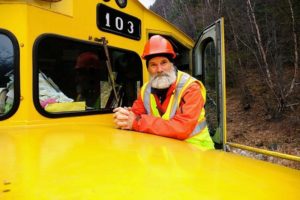
Is there anything else that you want to add?
Yes, people need to consider their travel carefully now, given the huge carbon footprint of jet aircraft. I won’t suggest that people stop traveling, because travel builds connections and understanding that our world desperately needs; but we need to deepen the way we travel. Instead of going on multiple cheap, superficial, high-carbon package tour vacations, take time to consider the journeys that really mean something to you. Choose them with care and go deep into the cultures and places you visit; immerse yourself in learning and connecting. Be sure you travel by the lowest-carbon alternatives, buy from locally-owned businesses, that you are a well-behaved visitor, and that your presence makes a positive contribution to your destination.
Take time. Consolidate your trips; travel less frequently but stay for longer. If you are going to burn carbon, make it worth it!
As travelers, we have a special responsibility to minimize the other parts of our carbon footprint: we need to contribute to carbon offset funds; switch our homes over to heat pumps, weatherize, bike more, drive less, use transit, hold business meetings online rather than traveling in person; and most importantly, be active politically, and advocate loudly for the strongest and most rapid climate action!
Finally, remember that the backcountry is a shrine, a temple, a cathedral; not a gymnasium or a stage. Consider the entry gate or trailhead a torii; the entry to a sacred space. Slow down and put aside the urban technological rush when you enter; tune in to what is going on out there. Put aside ego and competition; they have no place here. Move in reverence; snow sports are a not a conquest; but a dance, in harmony with your partner, snow and earth. Dance well, and treat your partner with honor and care!
From the Northern Japanese Alps,
Bill Glude, Avalanche Specialist
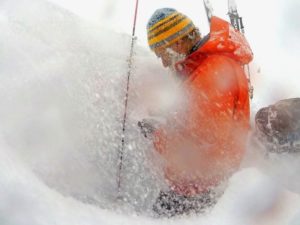
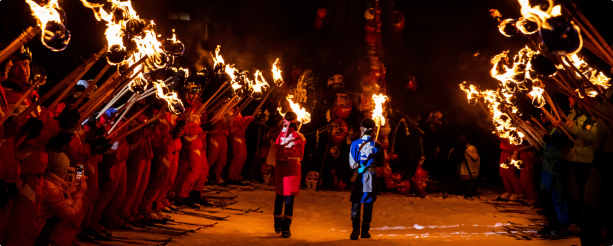



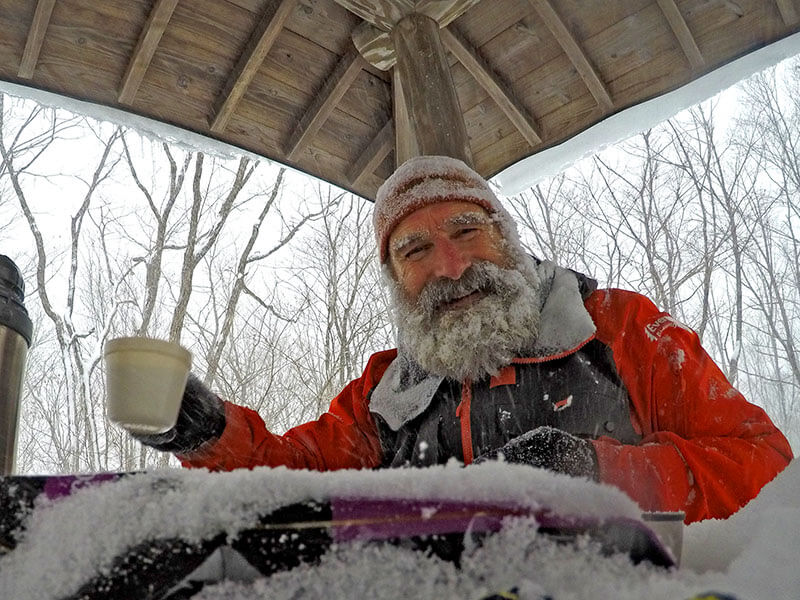
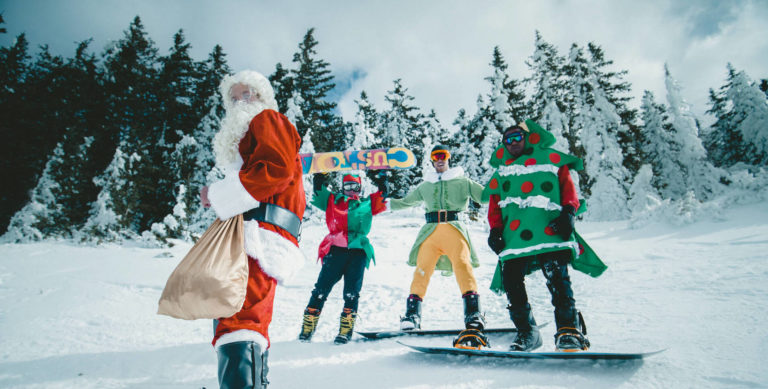
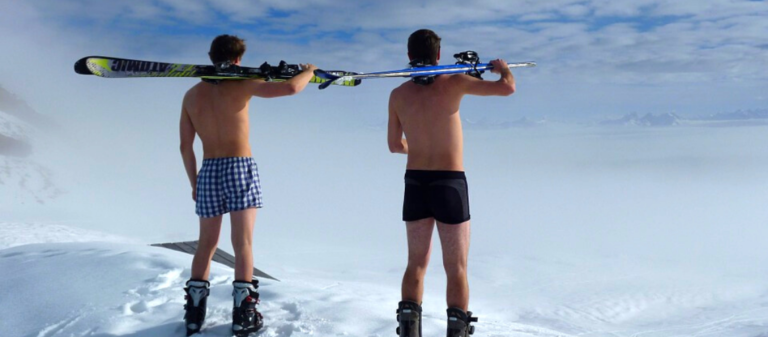
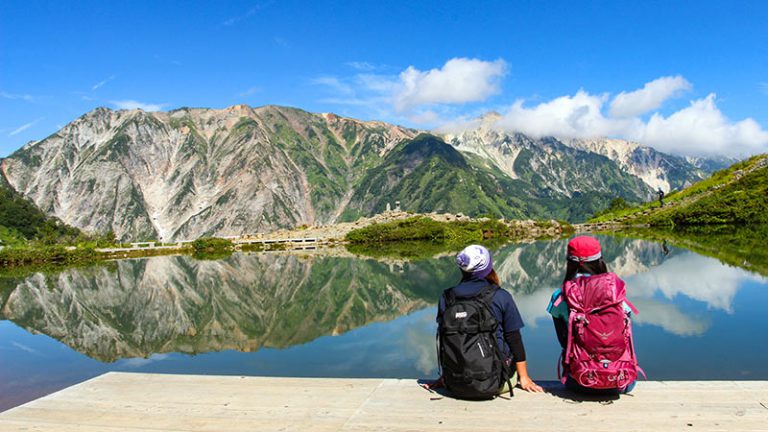
1 Comment
Diana Boyd
20th February 2020 at 1:48 amHey Bill what a wonderful article so great to learn more about you being family and all.